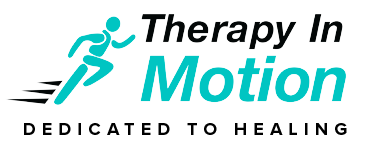While social distancing is critical during a pandemic, social isolation can have a negative impact on our overall health.
The changes in our daily routines, reduced interaction with friends and family, and increased financial stresses can take a toll on us mentally and physically.
Research suggests that isolation can have just as big of an effect on health and mortality as obesity, high blood pressure and even smoking.
More Important Now Than Ever
So much time at home may be more conducive to watching television and snacking than it is to maintaining your regular exercise routine. But staying active is more important now than ever.
It is is clear that regular exercise positively influences multiple factors correlated with happiness and general well-being.
Exercise releases “feel good” chemicals including endorphins, BDNF, serotonin and dopamine. These chemicals reduce the transmission of pain signals, promote feelings of pleasure, and reward and increase motivation. Exercise also reduces the release of cortisol, a stress-inducing chemical.
In short, exercise:
- Reduces stress and anxiety levels
- Improves overall mood
- Boosts the immune system
- Reduces physical pain
- Helps maintain routines
- Improves sleep quality
- Improves energy levels
- Helps prevent weight loss
How Much?
According to the American Heart Association, you should get at least 150 minutes per week of moderate-intensity aerobic activity or 75 minutes per week of vigorous aerobic activity. The association also recommends moderate to high-intensity muscle strengthening activities at least two days per week.
The good news is that even small movements can help, in simple ways:
- Stretch every day
- Go for a 10-minute walk after every large meal
- Do a set of quick exercises such as squats or lunges during commercial breaks
- Set an alarm to get up and move around the house every so often
- Walk or stand instead of sitting while talking on the phone
- Use a basket instead of a cart at the store
- Take the stairs
Physical Therapy Can Help
If pain, injury or other personal factors are limiting your ability to be active, physical therapy can help.
Physical therapists perform comprehensive evaluations to determine any musculoskeletal impairments or functional imitations that should be addressed in your active lifestyle plan. They can recommend appropriate exercises, environmental modifications or lifestyle changes to help you meet your personal fitness and well-being goals.
Physical therapists are here to empower you to lead a happier and healthier life through exercise, especially in a time of social distancing.
References:
https://royalsocietypublishing.org/doi/10.1098/rstb.2014.0114
https://www.health.harvard.edu/blog/can-exercise-help-treat-anxiety-2019102418096
https://www.aginglifecarejournal.org/health-effects-of-social-isolation-and-loneliness/
Written by Sara Arnold, PT, DPT, OCS, Independence, MO center
